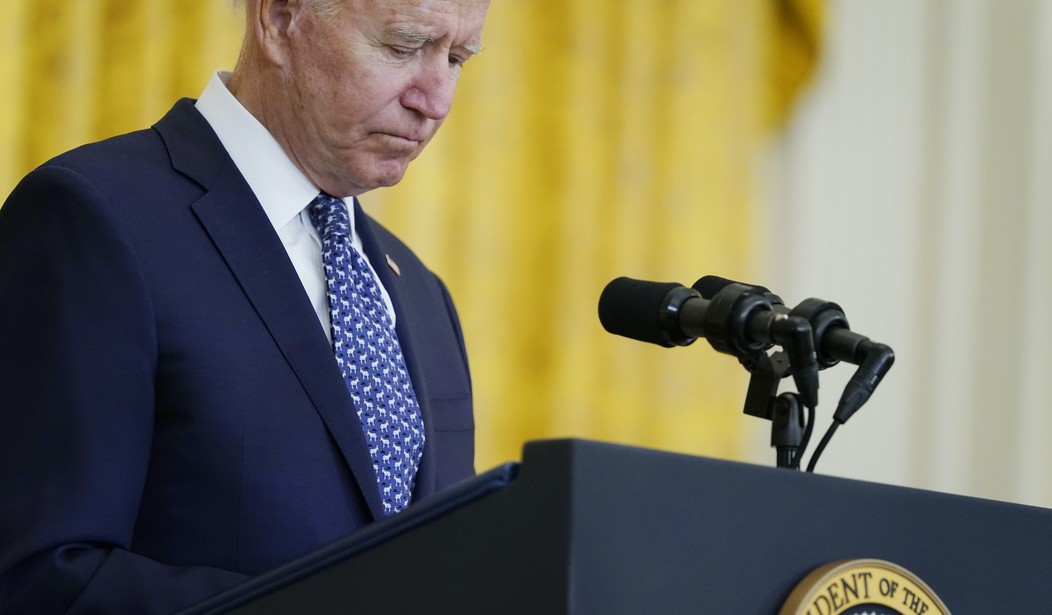At least in the short run, and that may be what matters most. Joe Biden has tried to counter the anger over the obviously non-“transitory” record inflation kicked into gear by his big stimulus package in March by pushing his Build Back Better proposal as the antidote. That sales pitch fell flat even at the New York Times, which points out that the massive $1.75 trillion bill will create even more inflationary pressures in the first year after passage:
A wide range of economists agree with the president — but only in part. They generally accept his argument that in the long run, the bill and his infrastructure plan could make businesses and their workers more productive, which would help to ease inflation as more goods and services are produced across the economy.
But many researchers, including a forecasting firm that Mr. Biden often cites to support the economic benefits of his proposals, say the bill is structured in a way that could add to inflation next year, before prices have had time to cool off.
Some economists and lawmakers worry about the timing, arguing that the risk of fueling more inflation when it has reached record highs outweighs the potential benefits of passing a big spending bill that could help to keep prices in check while addressing other social goals. Prices have picked up by 6.2 percent over the past year, the fastest pace in 31 years and far above the Federal Reserve’s inflation target.
Offering a new spending package to offset the inflation created by an earlier spending package sounds a lot like the “hair of the dog” hangover strategy. Biden and his economic team ignored warnings about his massive stimulus plan in March from even liberal economists like Larry Summers, insisting that the spending was necessary to prime the economic pump. Why would anyone have confidence in Biden’s promise that another drink would solve this hangover?
By the way, Moody’s Analytics sees the bipartisan infrastructure bill as net-inflationary too, which means that the BBB will only add to that impact:
Moody’s Analytics has estimated that the roughly $1 trillion infrastructure bill, which includes $550 billion in new spending, together with the $2 trillion social-spending and climate bill, would add about 0.3 percentage point to inflation, on average, for the 2022 to 2024 period.
Republicans have looked to seize on inflation ahead of next year’s midterm elections, with plans to target vulnerable incumbent Democrats by tying inflation to Mr. Biden’s agenda.
“Voters will hold Democrats accountable for causing this inflation crisis with their overspending and inability to manage our nation’s supply chain,” said Mike Berg, a spokesman for the Republican Party’s congressional campaign arm.
Assuming that both a BBB in some form and the BIF are in place next year, we can expect further acceleration of inflation for most of 2022. That will continue to erode buying power and savings in households that can least afford it, as inflation is in practice a regressive tax that hits the poor the hardest. With that in mind, Democrats looking at the midterms have some decisions to make:
Democrats also have to limit defections in the House, where they have a narrow 221-213 majority. There, recent debate over the bill has focused on its immigration, tax and paid-leave provisions, as well as whether the spending is fully paid for with new revenue—rather than the possible inflation impact.
That may change now that inflation has proven to be a lot less “transitory” than Biden promised. If we’re still at inflation rates that outstrip wage gains for most of the primary season, Democrats will get shredded at the voting booth a year from now. Do they want to run that risk just to rescue Biden from a confidence-crisis cascade of his own making? Most of them might just to get the hobby-horse items they can still pass, but “most” won’t cut it. They can’t lose a single senator or any more than three House Democrats. Biden had better prepare for a very personal deflation in the weeks ahead.








Join the conversation as a VIP Member